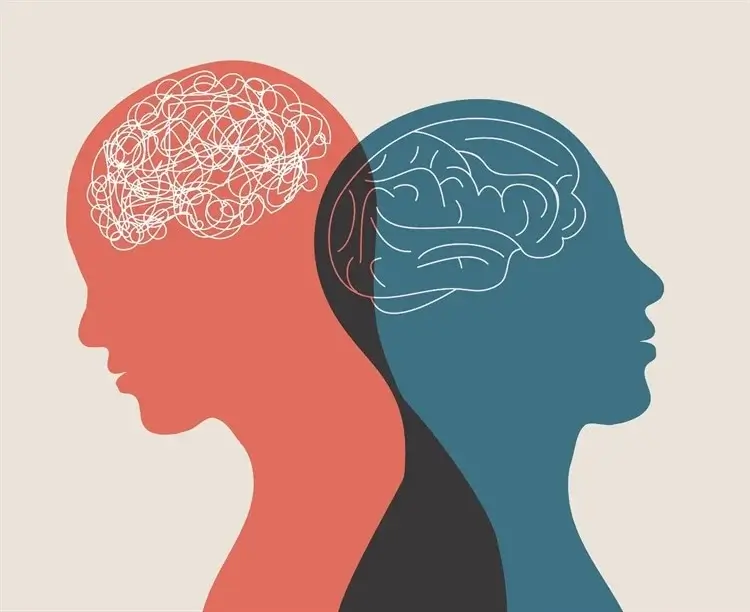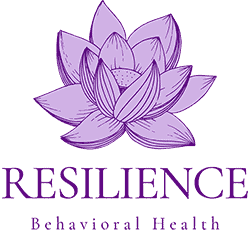At Resilience Behavioral Health, we provide effective treatment for mental health disorders. Our approach is designed to help you overcome your challenges and improve your well-being. First, we conduct a thorough assessment to understand your unique needs and develop a personalized treatment plan.
Our team of experienced professionals offers a range of evidence-based therapies, including counseling and psychotherapy. These sessions provide a safe space for you to explore your thoughts and emotions.In addition to therapy, we may recommend medication management to help alleviate symptoms and restore balance. Our skilled clinicians will work closely with you to find the right medication and dosage. We offer complementary practices such as mindfulness, meditation, and yoga. These techniques can enhance your overall well-being and promote healing.
Throughout your treatment, our dedicated team will provide continuous support and guidance. We’re here to help you navigate your journey towards recovery.We understand that seeking treatment for a mental health disorder can be challenging, but taking this step is crucial for your well-being.
At Resilience Behavioral Health, we’re committed to providing compassionate care and empowering you to achieve lasting mental wellness. Let us be your partner on this journey to a healthier, happier life.
What are Mental Health Disorders?
Mental health disorders encompass various conditions that profoundly impact our lives, affecting individuals of all ages, genders, and backgrounds. These disorders disrupt our thoughts, emotions, behaviors, and relationships. It’s crucial to recognize that mental health disorders are genuine medical conditions that warrant understanding, compassion, and appropriate treatment. They do not indicate weakness or personal failure.
To seek help effectively, it is vital to identify the signs and symptoms of mental health disorders. Timely support and early intervention can significantly contribute to managing and recovering from these conditions. Treatment options typically involve therapy, medication, and lifestyle adjustments, aiming to restore balance and improve overall well-being.
At our facility, our primary objective is to create a secure and supportive environment where you can explore, understand, and address your mental health concerns. We will guide you towards healing, resilience, and empowerment. Our devoted team is committed to supporting you throughout your journey, ensuring that you receive personalized care tailored to your specific needs.
You need not face these challenges alone. We are here to assist you in navigating the complexities of mental health disorders and finding effective strategies to manage and overcome them. Together, we can collaborate towards a brighter and more fulfilling future.

What are Some Examples of Mental Health Disorders?
Here are some of the most common examples of mental health disorders:
- Depression: Persistent sadness, loss of interest, and feelings of hopelessness.
- Anxiety disorders: Excessive worry, panic attacks, and irrational fears.
- Bipolar disorder: Periods of intense highs (mania) and lows (depression).
- Schizophrenia: Distorted thoughts, hallucinations, and impaired social functioning.
- Obsessive-Compulsive Disorder (OCD): Intrusive thoughts and repetitive behaviors to alleviate anxiety.
- Post-Traumatic Stress Disorder (PTSD): Flashbacks, nightmares, and severe anxiety following trauma.
- Eating disorders: Unhealthy preoccupation with weight, body image, and disordered eating habits.
- Attention-Deficit/Hyperactivity Disorder (ADHD): Inattention, hyperactivity, and impulsivity.
- Borderline Personality Disorder (BPD): Intense mood swings, unstable relationships, and self-image.
These examples highlight the diversity of mental health disorders. Remember, seeking help is a sign of strength, and treatment can lead to improved quality of life. We are here to provide support and guidance on your journey towards better mental well-being.
Who Struggles with Mental Health Disorders?
Mental health disorders can affect anyone, regardless of age, gender, or background. Transitioning from childhood to adulthood can be tough. Teenagers often battle anxiety and depression due to school, peers, and family pressures.
Adults face their own set of struggles. Work, relationships, and responsibilities can contribute to stress, depression, and other disorders. It’s vital to recognize these challenges and seek help promptly.
Even older adults are not exempt. Aging brings its own unique set of difficulties, like loneliness, grief, and health concerns that impact mental health.
Mental health disorders do not discriminate based on socioeconomic status. Rich or poor, anyone can face these issues. However, there is hope. With proper support and treatment, anyone can find relief and recovery.
Ignoring the problem only prolongs the suffering. Mental health disorders are tough, but not unbeatable. By acknowledging the struggle and seeking assistance, individuals can regain control and find a brighter future.
You are not alone in this. Help is available to guide you through this journey. Take the first step towards healing and well-being. You deserve a fulfilling life, free from the burdens of mental health disorders.
Treatment for Mental Health
At Resilience Behavioral Health we provide comprehensive treatment options to address mental health disorders, including our Partial Hospitalization Program (PHP) and Intensive Outpatient Program (IOP). These programs are designed to offer intensive and structured care while allowing you to maintain your daily routines and responsibilities.
Our highly structured Partial Hospitalization Program (PHP) is perfect for individuals requiring a higher level of care. In PHP, you will receive daily therapy sessions, medication management, and participate in various evidence-based therapeutic activities. Our expert clinicians will work closely with you to develop a personalized treatment plan that addresses your specific needs.
If you prefer a flexible treatment option that allows you to receive comprehensive care while living at home, our Intensive Outpatient Program (IOP) may be the right choice for you. IOP provides a supportive and therapeutic environment where you will attend therapy sessions multiple times a week. This program focuses on individual and group therapy, psycho-education, skill-building, and relapse prevention strategies. It promotes healing, coping skills development, and sustainable recovery.
Both our PHP and IOP programs are facilitated by a team of experienced professionals, including psychiatrists, psychologists, licensed therapists, and nurses. We strive to provide a welcoming and nonjudgmental atmosphere where you can feel supported, empowered, and encouraged throughout your treatment journey.
Our goal is to equip you with the tools and strategies necessary to effectively manage your mental health disorder. We believe in fostering resilience and promoting lasting well-being, and we are committed to walking alongside you as you navigate the path towards a healthier and happier life.
Choosing a Mental Health Program
Choosing a mental health disorder program is a crucial decision. Here are some factors to consider:
Accreditation and Expertise: Make sure the program is accredited and staffed by licensed professionals with expertise in mental health treatment.
Treatment Approach: Evaluate if the program aligns with your needs, offering evidence-based therapies and a holistic approach.
Individualized Care: Look for programs that provide personalized treatment plans tailored to your specific needs.
Level of Care: Determine the level of care you require, such as inpatient, outpatient, or a combination like PHP or IOP.
Supportive Environment: Seek programs that offer a welcoming, nonjudgmental, and supportive atmosphere.
Continuum of Care: Consider if the program provides a continuum of care, including options for ongoing support and aftercare.
Insurance Coverage and Cost: Check if the program is covered by your insurance and evaluate the cost implications.
Reviews and Recommendations: Research and gather feedback from trusted sources, including testimonials and recommendations.
Remember, choosing a mental health disorder program is a personal decision. Take the time to explore your options, ask questions, and trust your instincts to find the program that best suits your needs and supports your journey towards mental well-being.
Find the best Mental Health Program for you or a loved one
If you or someone you care about is looking for mental health programs, the initial step you should take is to contact a Licensed and Accredited agency such as Resilience Behavioral Health. They can provide you with access to resources for treating mental health disorders. Don’t hesitate to call today for a completely free and confidential assessment at (888)-401-1179


